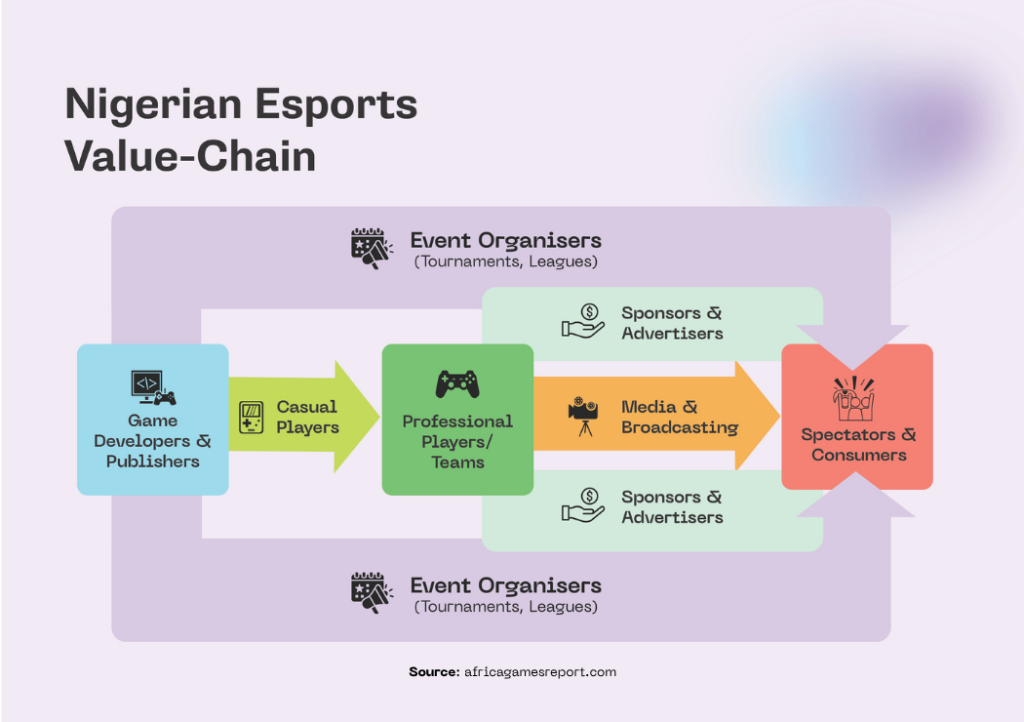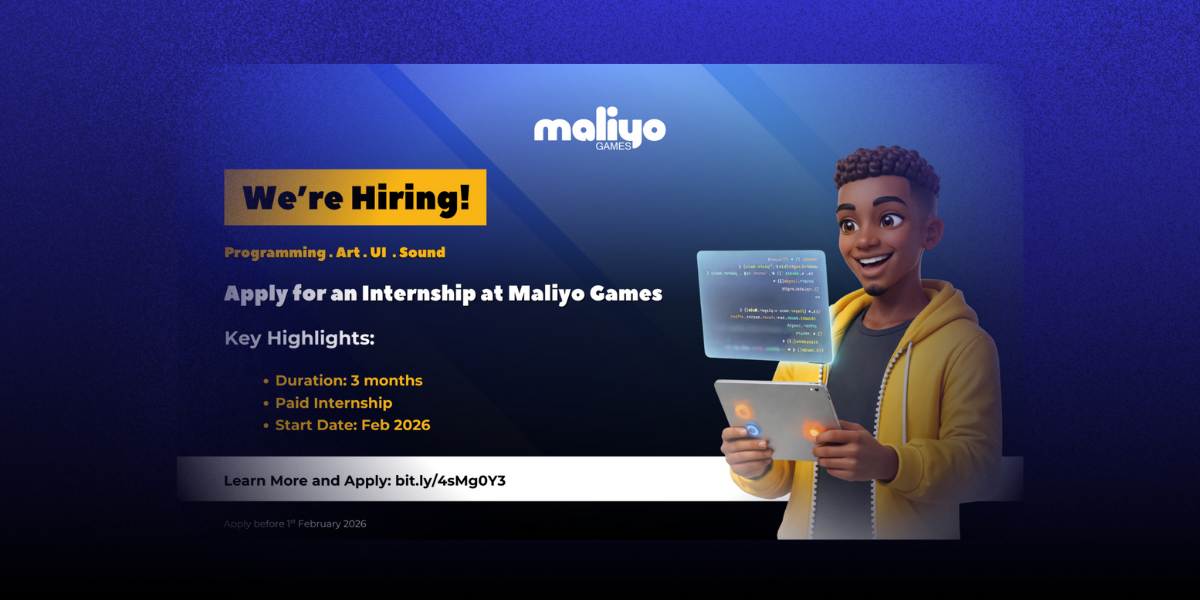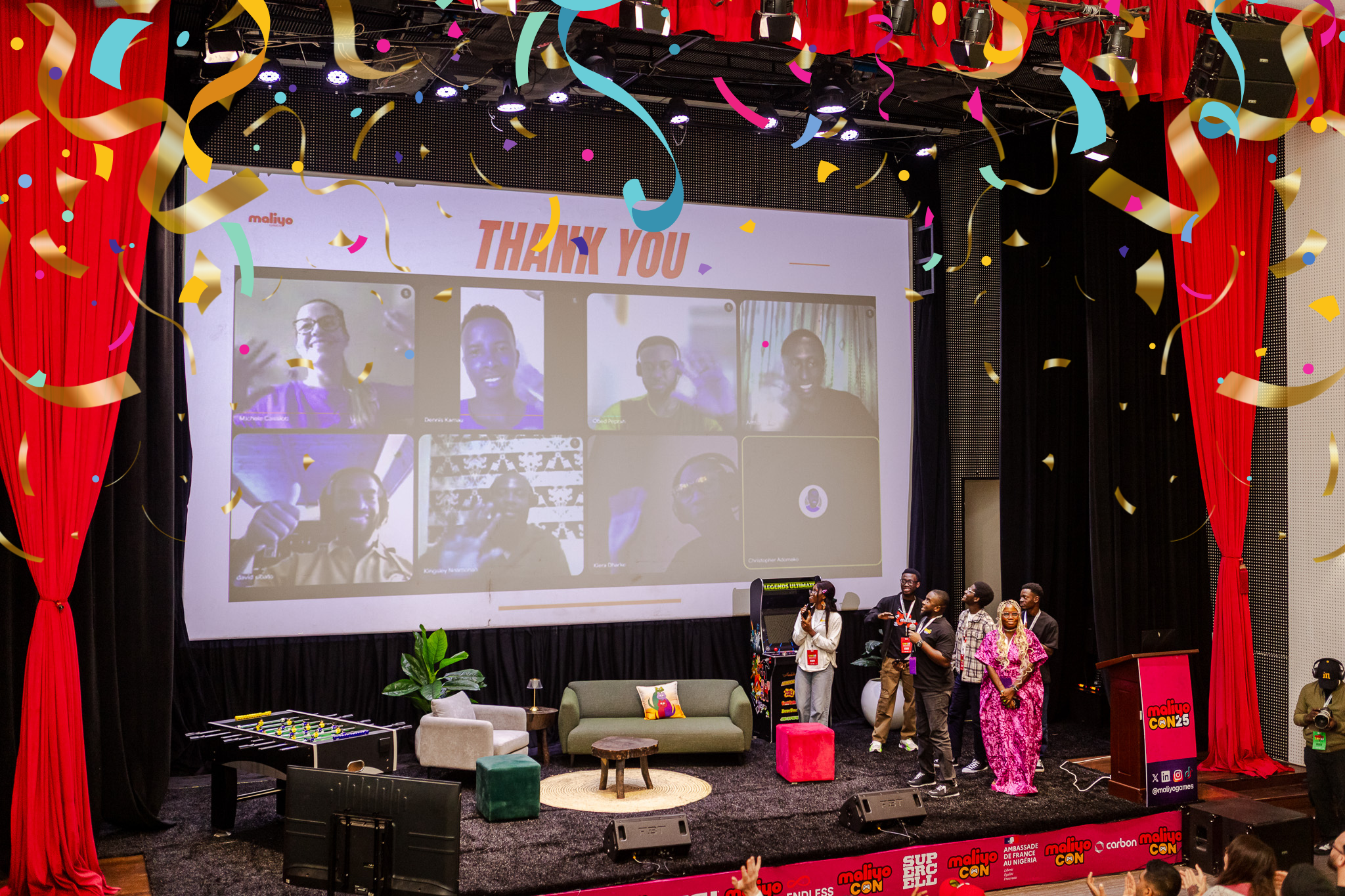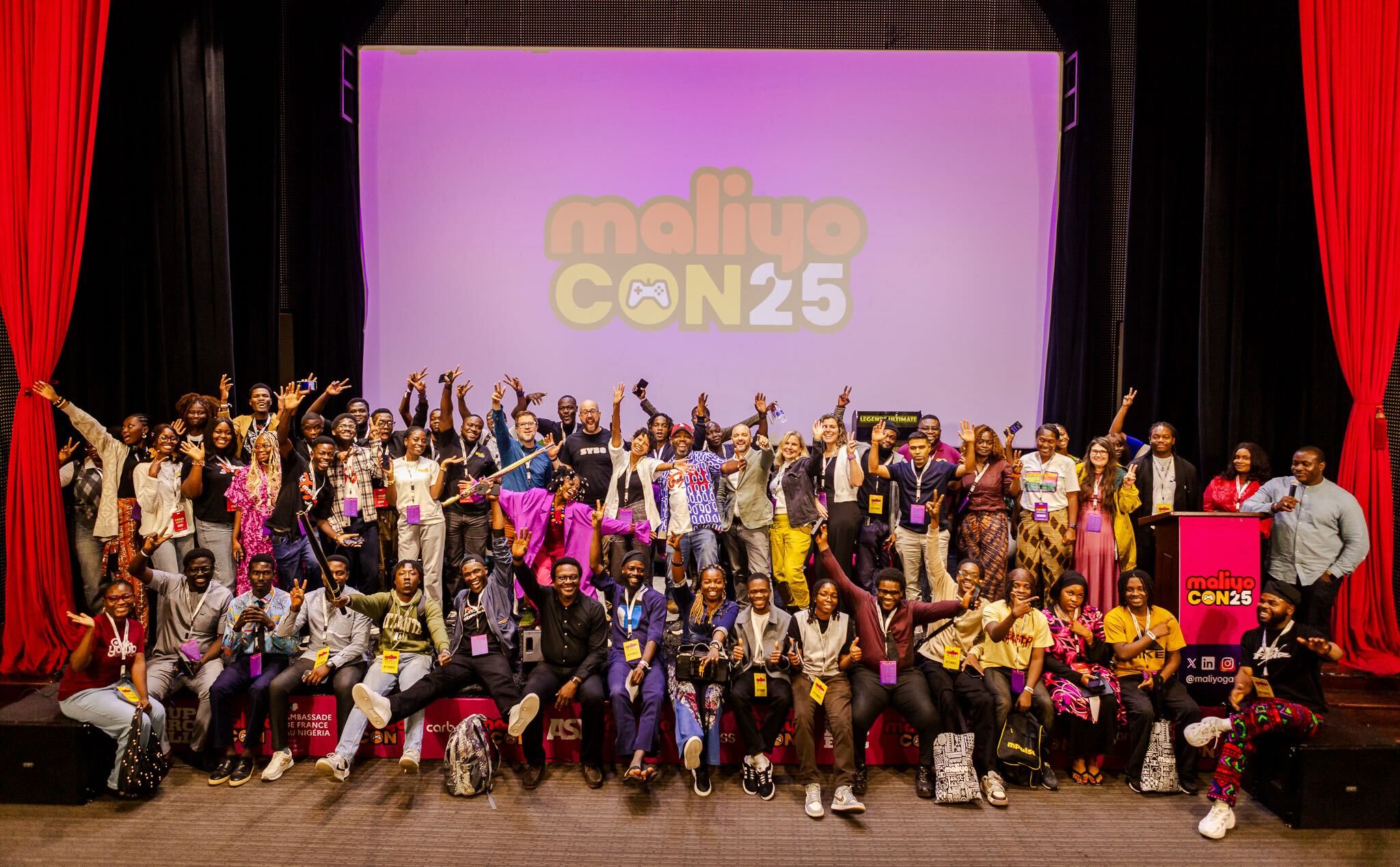There is a moment in every creative economy where the familiar becomes infrastructure.
Where culture transforms into industry.
Where shared passion matures into coordinated potential.
For Nigeria, and indeed much of Africa, we are witnessing that moment in gaming and esports right now not gradually, not quietly, but with momentum born from years of grassroots energy, informal innovation, and youth-driven demand.
A few years ago, “esports in Nigeria” meant noisy oniles (gaming cafés), crowds gathered around flickering screens, friendly taunts, ₦200 bets, and endless arguments about who the real king of FIFA was.
Today, those same behaviours: competition, community, digital identity, skill expression are resurfacing in a more structured form:
university gaming clubs, corporate-sponsored tournaments, broadcast booths, streaming studios, mobile-first multiplayer experiences, and venture-backed game publishers reimagining what African gaming looks like at scale.
The release of the Nigeria Gaming & Esports Report 2025, developed in collaboration with Maliyo Games, documents this transformation not as prediction, but as present reality.
📄 Download the report here: https://africagamesreport.com/nigeria
Nigeria’s esports moment is not a trend. It is a structural shift; economic, creative, social, and generational in its depth.
From Oniles to Organized Arenas: A Cultural Evolution Rooted in Youth & Connectivity
Gaming in Nigeria did not emerge overnight.
It evolved organically through:
- Urban gaming cafés
- Campus competitions and hostel battles
- YouTube watch-parties for global esports finals
- Mobile tournaments in WhatsApp groups and Telegram leagues
- Community-built talent ladders
What began as casual rivalry has become systemized aspiration.
But unlike the West, where gaming culture was historically PC and console-driven, Nigeria’s evolution is uniquely mobile. With 90% of gamers playing primarily on phones, the country has leapfrogged legacy platforms and gone straight into a mobile-first esports economy.
That shift matters because it democratises access.
Mobile gaming does not require a gaming rig, a console, or even a dedicated venue.
It requires what millions already have: a smartphone and the desire to compete, connect, and express skill.
This grassroots mobile foundation is what makes Nigeria’s esports ecosystem uniquely scalable.

Nigeria by the Numbers: A Market in Motion
The data confirms what the streets, streams, and screens have been signaling:
- 46.6 million active gamers
- Up to $300M in gaming revenue
- 90% mobile penetration in player base
- An emerging class of tournament organisers,casters, and gaming content creators
- Rapid growth in brand collaborations, university esports movements, and training pipelines
These are not speculative figures, they reflect market traction.
Nigeria is not “catching up” to global gaming cultures.
Nigeria is building an indigenous model, driven by mobile, community, creativity, and cultural confidence.
Why Esports Matters in Nigeria (Beyond Competition)
Globally, esports is already a $1B+ industry. But in Nigeria, its meaning extends beyond digital trophies.
Esports represents:
📌 Economic mobility
Opportunities for youth in software, production, shout-casting, event management, content creation, UX, and entrepreneurship.
📌 Digital workforce development
Esports nurtures discipline, teamwork, strategy, digital fluency skills relevant across technology industries.
📌 Cultural storytelling and identity
African narrative, humour, community, rivalry expressed through gaming formats we own and evolve.
📌 Industry pipeline creation
Esports is a gateway for talent into the African game development ecosystem; a bridge between players and builders.
📌 Creative ecosystem building
Streaming, editing, music, distribution, fandom all emerge around competitive play.
Nigeria’s esports ecosystem is less about replicating Western models and more about forging its own identity, shaped by its population dynamics, digital behaviours, and creative pulse.
A Movement Powered by Community and Ambition
Across Lagos, Abuja, Port Harcourt, Ibadan and Kano, gaming gatherings once seen as leisure spaces now serve as incubators for talent.
- Local streamers building loyal micro-communities
- Campus gaming clubs scaling into formal university leagues
- Corporate pop-up tournaments drawing hundreds of attendees
- Community-run mobile challenges with national participation
- Content creators narrating competitive gaming with Nigerian personality and rhythm
This is what ecosystem formation looks like; not explosive hype, but expanding coordination.
Nigeria is not waiting for global validation.
Nigeria is documenting, building, iterating, and championing its own scene.
And that matters.
Because cultural self-belief is the foundation of all industry scale.
Industry Pillars Needed for the Next Leap
The Report identifies the next stage priorities clearly:
1️⃣ Infrastructure
Not just arenas, also streaming rigs, community hubs, training centres, and powered gaming lounges.
2️⃣ Consistent Sponsorship
Brands testing, learning, scaling — just like early music and film sponsors did.
3️⃣ Education & Career Pipelines
From coding to casting, tournament ops to broadcast engineering: esports talent must be trained and nurtured.
4️⃣ Local IP Integration
African-built games must enter the competitive ecosystem.
(Mobile-first titles like Safari City will play a role here over time.)
5️⃣ Policy & Government Engagement
For youth-economic inclusion, safety frameworks, and export pipelines.
If Nigeria gets these pillars right, esports becomes not just entertainment but economic infrastructure for a generation.
Why This Work Matters to Maliyo Games
At Maliyo, our mission has always been intentional:
To increase African participation in gaming as players, creators, industry leaders, and competitors.
This is why we build:
- Culturally authentic titles like Safari City
- Talent programs like GameUp Africa
- Platforms like MaliyoCON
- Industry research like this Esports Report
We believe Africa does not just belong in global gaming
Africa must lead in its own voice, pace, and cultural imagination.
We don’t want our story to be African players exist.
We want it to be:
African games, African leagues, African champions, African IP — powering global conversations.
Esports is not a side quest for us.
It is part of the ecosystem we are building.
This Report Is a Beginning, Not a Summary
There will be more reports.
More research.
More talent graduating from GameUp Africa.
More studios rising.
More tournaments, streams, and arenas.
More African games going global.
This is not a moment; it is a movement.
The Nigeria Esports Report is proof of momentum, maturity, and market confidence and a call to action to everyone who believes in African creativity as a growth engine.
📥 Download the full report
https://africagamesreport.com/nigeria
Final Word
Esports in Nigeria is not emerging.
It has emerged.
Not through hype, but through hustle.
Not through imitation, but through innovation.
Not through outsiders, but through community, talent, and relentless belief.
The world has taken note.
Now the industry will take shape.
And as always, we build together.




